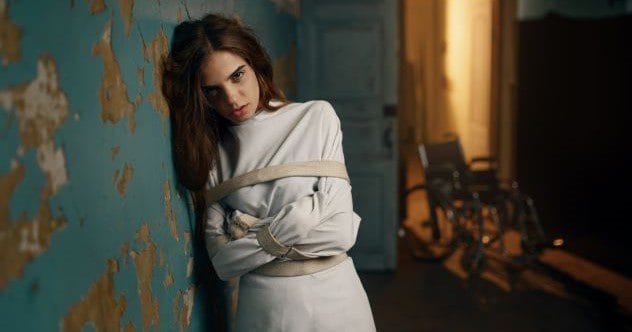Mental health has often been misunderstood and misrepresented, leading to stigma. Fortunately, film and television are increasingly tackling these complex issues. However, accuracy is key; misrepresentation can reinforce harmful stereotypes. It’s vital to portray mental health struggles authentically, showing that they’re not just fleeting quirks but real, daily battles. Here are 10 movies that stand out for their accurate and sensitive handling of mental health.
10. Beautiful Boy (2018)
Based on a true story, Beautiful Boy delves into Nic’s struggle with drug addiction and his father David’s desperate attempts to help. Timothee Chalamet and Steve Carell deliver powerful performances, capturing the devastating impact of addiction.
Unlike many addiction films, Beautiful Boy explores the resistance and frustration involved in seeking help. It realistically portrays the depths of addiction and its profound effect on families, highlighting a parent’s helplessness when a child doesn’t want to recover. The film accurately depicts the physical, emotional, and relational changes that occur in someone battling addiction. [1]
9. The Perks of Being a Wallflower (2012)
The Perks of Being a Wallflower follows Charlie (Logan Lerman), a high school freshman, as he navigates adolescence with the help of seniors Sam (Emma Watson) and Patrick (Ezra Miller).
Early in the film, Charlie reveals the death of his Aunt Helen in a car crash when he was seven. Flashbacks reveal she sexually abused him, triggering an emotional breakdown that leads to hospitalization. During his stay, Charlie confronts his trauma and begins to understand himself.
The film excels in portraying PTSD, sexual abuse, and trauma. It accurately depicts suppressed memories, a common PTSD symptom, showing how the brain hides traumatic experiences from conscious awareness. [2]
8. Silver Linings Playbook (2012)
Bipolar disorder is often misrepresented in film, with stereotypes focusing on violence and unpredictability. While these symptoms can occur, they don’t define every person with bipolar disorder.
Pat (Bradley Cooper), recently released from a psychiatric hospital after a violent incident, meets Tiffany (Jennifer Lawrence), a widow also struggling with bipolar disorder. Despite sharing the diagnosis, they experience their mental illness differently.
Silver Linings Playbook impressively illustrates the diverse ways bipolar disorder manifests, including manic and depressive episodes, offering a nuanced view of the condition. [3]
7. Inside Out (2015)
Inside Out, an animated film, surprisingly offers deep insights into mental health. The story centers on Riley as she navigates major life changes, including a cross-country move and a new school. The film personifies Riley’s emotions—Sadness, Fear, Disgust, Joy, and Anger—as characters.
The film emphasizes emotional balance and coping with feelings, which is crucial for young people dealing with mental health issues. It teaches that so-called ‘negative’ emotions like sadness and anger are unavoidable and important. [4]
6. It’s Kind of a Funny Story (2010)
Based on the novel, It’s Kind of a Funny Story follows Craig, a high schooler who checks himself into a psychiatric hospital due to suicidal thoughts. Expecting a quick assessment, he finds himself required to stay for at least a week.
Craig meets various patients, including characters played by Zach Galifianakis and Emma Roberts. The film addresses sensitive topics like suicide attempts and self-harm respectfully, while using humor to challenge the stereotype that people with mental illness are always miserable. The author, Ned Vizzini, drew from his own experiences in a mental health hospital. [5]
5. Black Swan (2010)
Black Swan is a psychological drama exploring self-injury, eating disorders, and psychotic breaks. Nina (Natalie Portman), a ballerina, wins the lead in Swan Lake, requiring her to embody both the White Swan’s purity and the Black Swan’s darkness. The role pushes her into a psychotic spiral.
Nina experiences delusions, struggling to distinguish reality from fantasy. The film portrays disordered behaviors, including anxiety, OCD, eating disorders, and delusional thinking. While never explicitly diagnosed, her behaviors suggest a personality disorder characterized by rigid and unpredictable thinking. [6]
4. Girl, Interrupted (1999)
Girl, Interrupted tackles borderline personality disorder (BPD), which affects how individuals perceive themselves and others, causing daily functioning issues. Susanna Kaysen (Winona Ryder) is treated for BPD in a psychiatric ward.
Susanna meets Lisa (Angelina Jolie), a sociopath, displaying manipulative and deceitful behaviors indicative of antisocial personality disorder. The film highlights the severity of personality disorders and their negative impact. It uniquely shows someone with sociopathic tendencies who isn’t inherently violent. [7]
3. To the Bone (2017)
To the Bone follows Ellen (Lily Collins), a 20-year-old with severe anorexia nervosa. After repeated treatment failures, she enters a group home recovery center.
Ellen initially resists treatment, a common symptom of eating disorders, which become coping mechanisms. The film effectively portrays various eating disorders, including bulimia and binge eating disorder, and highlights the fact that these disorders aren’t always about body image. [8]
2. Little Miss Sunshine (2006)
Little Miss Sunshine follows a family on a road trip to a beauty pageant. While lighthearted, it addresses major depressive disorder through Uncle Frank (Steve Carell), who attempts suicide due to job loss and relationship problems. Unable to afford treatment, he stays with his family.
Despite his depression and suicidal tendencies, Frank shows compassion for his family, illustrating that people with depression don’t always appear miserable and often mask their pain. [9]
1. The Dark Knight (2008)
The Dark Knight features Heath Ledger’s portrayal of the Joker, who exhibits violent, emotionless, and isolated behaviors, indicative of psychopathy. The film highlights how past trauma can manifest in violent ways and explores generational trauma.
Joker (2019), starring Joaquin Phoenix, delves further into mental health, portraying feelings of persecution and delusions consistent with paranoid schizophrenia, showcasing the character’s descent into madness. [10]
These films offer compelling portrayals of mental health issues, contributing to a more informed and compassionate understanding. By accurately depicting these struggles, they help to reduce stigma and promote empathy.
Which of these movies resonated with you the most? Share your thoughts in the comments below!










